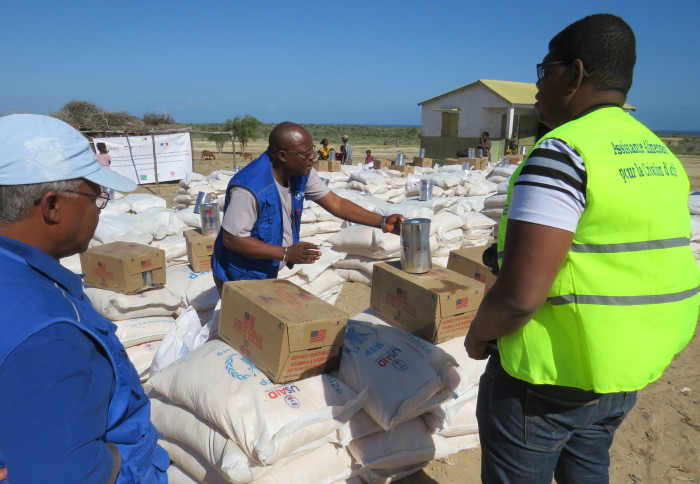Food crisis in Madagascar is not caused by climate change, find scientists

Poverty, COVID-19 and vulnerability in the population are the main drivers of the food crisis, according to an international team of scientists.
Following two years of below-average rainfall, Southern Madagascar is experiencing a severe drought. This has led to crop failures and a humanitarian crisis affecting more than one million people, with tens of thousands facing famine-like conditions.
Scientists at the World Weather Attribution (WWA), an international collaboration of climate scientists that assess the role of climate change in extreme weather events in the immediate aftermath of their occurrence, have calculated the influence of human-caused climate change on the low levels of rainfall in the region.
To do so, they analysed weather records and climate model simulations to compare the climate as it is today, after about 1.2°C of global warming since the late 1800s, with the climate of the past. In the study, "Attribution of severe low rainfall in southern Madagascar, 2019-21", they conclude that climate change played a minimal role in the current drought.
Climate change is a threat multiplier, but not the only one. With this particular drought, it was more the natural rain variability, the very high vulnerability of the population and the impact of COVID-19 that came together. Dr Friederike Otto Senior Lecturer in Climate Science at the Grantham Institute
"While global warming may have made a small contribution to the lack of rain observed over the last two years, we cannot separate this signal from the high natural variability of the climate in that region," explains Dr Friederike (Fredi) Otto, Head of WWA, who recently joined the Grantham Institute – Climate Change and the Environment as Senior Lecturer in Climate Science.
The research shows that vulnerability to low levels of rainfall is the main factor behind the food crisis. "Climate change is a threat multiplier, but not the only one. With this particular drought, it was more the natural rain variability, the very high vulnerability of the population and the impact of COVID-19 that came together," explains Dr Otto.
Madagascar is one of the poorest countries of the world, with more than 90% of people living below the poverty line in the south of the country. This makes it difficult for local communities to cope with any prolonged period of drought, particularly when they depend on rain-fed agriculture. In addition, over the past two years, COVID-19 restrictions stopped people from the region going elsewhere in the country to find work, as they have done in the past.
Improving resilience to extreme weather
Addressing poverty, over-reliance on agriculture and poor infrastructure is key to preventing future food crises. If such changes aren't made, even slight shifts in climate patterns could be "absolutely catastrophic" for Madagascar, says Dr Otto.
What we are seeing with this event in Madagascar shows that, in many cases, we are not even prepared for today’s climate. Maarten van Aalst Director of the Red Cross Red Crescent Climate Centre
Maarten van Aalst, Director of the Red Cross Red Crescent Climate Centre and co-author of the study, underlines the need to improve resilience to extreme weather in Southern Madagascar. "When most people survive on low income and rely on year-to-year crops, the effects of prolonged droughts or flooding can be devastating," he says. "What we are seeing with this event in Madagascar shows that, in many cases, we are not even prepared for today’s climate. Addressing the vulnerability in the region and improving the living conditions of the population remains critical."
Adapted from a press release written by Global Strategic Communications Council (GSCC) Network.
Article text (excluding photos or graphics) © Imperial College London.
Photos and graphics subject to third party copyright used with permission or © Imperial College London.
Reporter
Lottie Butler
The Grantham Institute for Climate Change